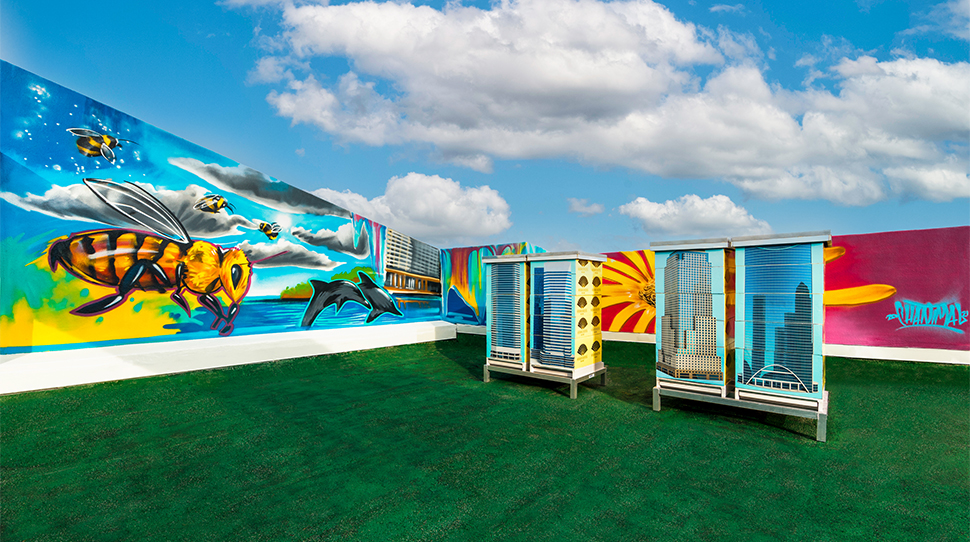

The pandemic forced hotels to alter how they operate, pushing health security to the forefront of the hospitality community’s consciousness. But given these safety measures came with the onset of disposable goods that range from masks to menus, experts worried was that this new focus would derail the burgeoning industry trend to make your next stay more sustainable.
The pandemic has failed to dissuade luxury travelers from their quest to find eco-friendly hotels. According to a new poll from Virtuoso, a global network of agencies that specialize in luxury travel, half of the travelers surveyed said it’s important to choose a hotel, cruise line or travel company with a strong sustainability policy. And 70 percent said that traveling sustainably enhances their vacation experience. In fact, 82 percent of respondents reported that the pandemic made them want to travel more sustainably in the future.
But it’s a false choice to suggest that hospitality companies can’t enhance safety without lowering sustainability standards, says Hervé Houdré, a 20-year expert in sustainable hospitality who also helped create the initial phase of Forbes Travel Guide’s inaugural sustainability standards, which debuted today. “If a property is deep into sustainability, they would not have slowed down [during the pandemic] because they keep saving energy, water.”
While the hotel sector has to consider guests’ safety, it must also keep in mind what Houdré refers to as the seventh generation. The idea comes from Roman Krznaric’s book The Good Ancestor, which says that certain Native American groups never make a decision without laying out its consequences for the seventh generation.
“We should all think that way,” Houdré says. “My point, if I come back to sustainability, is not just my daughter. It’s not about her kids or their kids. It’s the ones coming in five or seven generations. What we do today should count for them.”
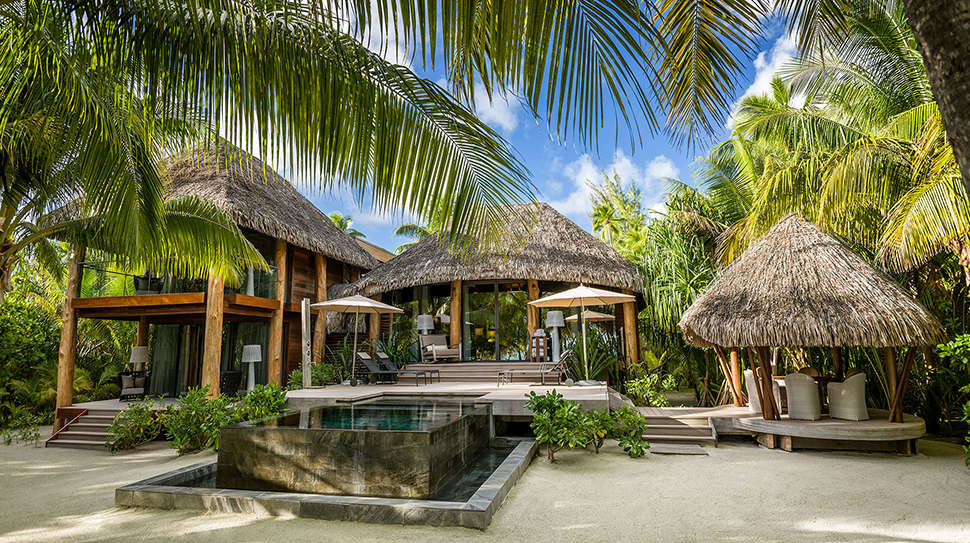
Defining Sustainability
According to Houdré, the buzzword in the sustainability sphere is ESG, or environmental and social governance. This means that businesses are looking to define sustainability more broadly than paramount ecological concerns. “This is what all the large companies in the world, as well as the large companies our industry, are looking at,” he says. “It’s not just the environment. It’s not just social responsibility. But it’s as well the governance of the company, meaning we do the right thing as a corporation. Within this, they include now gender equality, diversity, human trafficking, child protection. This was brought into the larger scope of sustainability.”
“Some people confuse sustainability with simply thinking of the environment — it’s not,” he says. “Sustainability is definitely what’s called the triple bottom line — making a profit while taking care of the environment and taking care of the communities around you.”
But he warns that hotels can’t just pay lip service. They have to carry through with their sustainable promises. “Hoteliers have to be genuine about what they are doing,” he says. “If they don’t do it with passion or belief, then their staff will notice, the customers will notice. It has to come from the heart.”
Making Renewable Energy
Some hotels are doing just this by helping the planet while not sacrificing the experience for guests. Houdré says a good example is The Brando, a Five-Star eco island paradise in French Polynesia that’s close to being carbon neutral. Among its many notable efforts, the trailblazing hotel uses naturally cold deep seawater to power its air conditioning system, which reduces its energy demands by nearly 70 percent. Houdré also mentions Four-Star Baur au Lac, which is steps from Lake Zurich, has been employing the same AC process for more than a decade.
“This is, to me, the pillar of any strategy,” he says. “If you do that, it really proves that your heart as well your mind [are in the right place].”
Another source of innovation is found at Wynn Las Vegas. Its 160-acre solar facility offsets up to 75 percent of the resort’s peak power requirements, the largest percentage of renewable energy used by any Las Vegas hotel. The facility also powers Wynn’s recently expanded meetings and convention space with 100 percent renewable energy, making it one of the most environmentally conscious planned developments in the city.
Wynn also deserves attention for its 18-hole golf course. While a golf course in the Nevada desert may seem contradictory, the eco-friendly hotel has a series of wells on its grounds that function as a separate water system from the property. The soil is monitored with sensors and weather stations that are connected to the central irrigation system so that no water is wasted — the course only receives the amount it needs and at the right time. All of the water used to maintain the course is recaptured from the ground, and not pulled from a municipal source.
MGM Resorts also is tapping into renewable energy. Its solar array (which is a collection of panels) on the Mandalay Bay Convention Center rooftop supplies 25 percent of the power on the entire Mandalay Bay Resort & Casino campus. The company recently constructed a group of more than 330,000 solar panels covering more than 700 acres; it will provide up to 90 percent of the total daytime power needs of MGM’s Las Vegas Strip properties. When clean, green electricity starts being produced here in July 2021, the array will generate the same amount of power used by about 27,000 homes for a year.
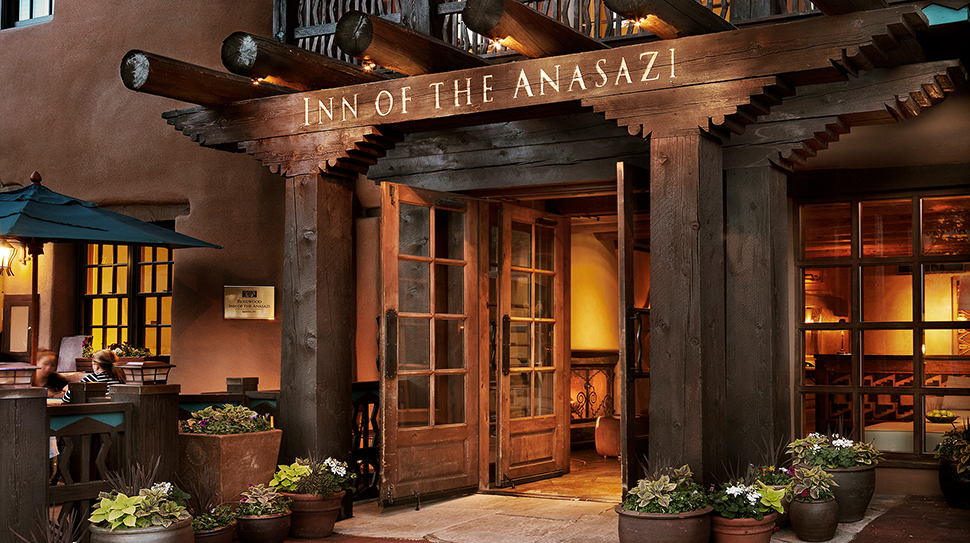
Trending at Sustainable Hotels
Reducing the use of single-use plastics, the most common pollutant found in oceans, has been the focus of many companies, Houdré says. Family-owned Red Carnation Hotels — which includes The Egerton House Hotel, Hotel 41 and The Milestone Hotel & Residences in London and Ashford Castle in Ireland — aims to get rid of these plastics by 2022. One of the largest hospitality companies in the world, Accor, made the same pledge for next year for all of its 39 brands, which include Fairmont, Raffles, Banyan Tree and SLS.
While Rosewood Hotels & Resorts works to ditch them by 2025, Four-Star Rosewood Inn of the Anasazi in Santa Fe eliminated the 40,000 plastic water bottles it used each year and switched to agave straws, wheat straw for stirrers and eco-conscious bags and to-go containers at all of its dining establishments as of January.
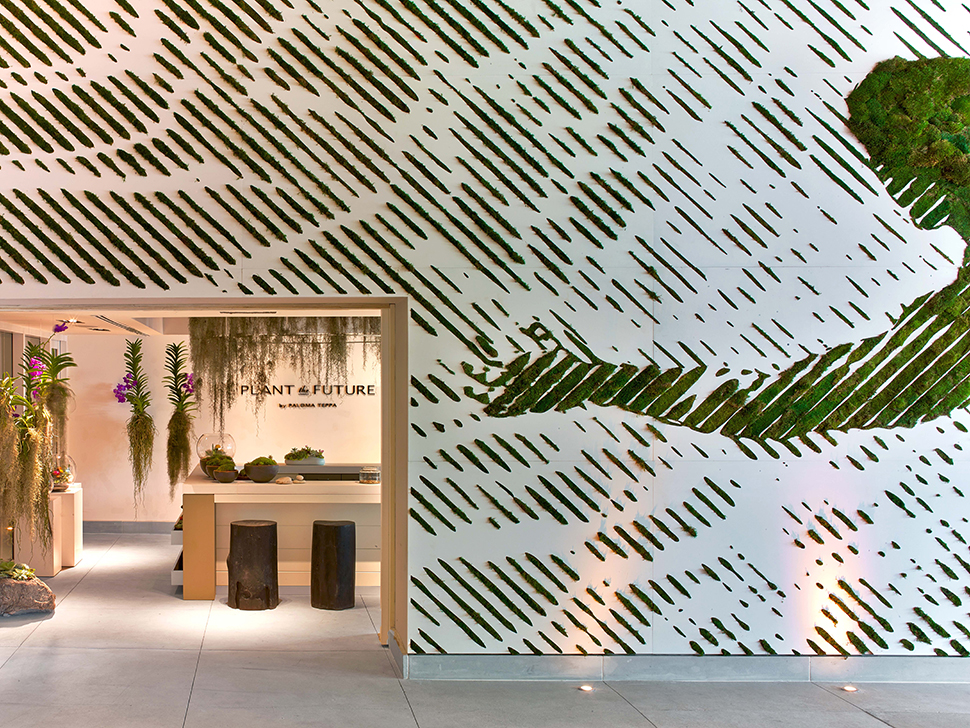
Sustainability led almost every facet of the chic design at 1 Hotel South Beach in Miami, from the green living walls gracing the indoors and outdoors to the reclaimed wood and local coral stone that decorate the spaces. The property made plastic bottles obsolete by equipping every faucet, from sinks to showers, with a filtration system so that quality water is available to drink from the provided cups and carafes, which are made of recycled wine bottles.
Bathrooms are another area where single-use plastics proliferate. The Peninsula Hotels found an environmentally friendly yet elegant solution. Partnering with La Bottega, a company that designs and manufactures luxury hotel toiletries, Peninsula created a vegan line of amenities that are free of parabens, silicone, gluten and soy, and each has an invigorating scent unique to its destination. The shampoo, conditioner, lotion and more also come in packaging that’s 99.9 percent free of single-use petroleum plastics. Select containers are composed of 45 percent recycled aluminum, with caps made of a recyclable alloy. In addition, plastic shower caps, toothbrushes and razors have been replaced with ecological alternatives made from corn starch, wheat, wood and recycled metal.

Houdré says another hot sustainability trend is food, specifically making sure the dishes that properties serve come from animals that are treated humanely. “I think the pandemic actually has accelerated that,” he says. “From a customer’s point of view…they were a lot more concerned by what they are eating than what the hotel is doing. The farm to table, the organic, the seasonal, the local, the fair trade — all these things, to clients, it was extremely important to them before knowing if we had solar panels on the roof. And this is going to grow.”
The Peninsula Hotels has made great strides here. It was one of the first global hotel companies to implement a group-wide ban on shark fin (shark fin soup is a delicacy in certain cultures). Peninsula wanted to preserve the shark population, which is integral to the underwater ecosystem, and deter finning, a gruesome practice that involves cutting off the fin, often while the shark is still alive, and then dumping the animal back into the sea to die slowly. More recently, in 2020, Peninsula adopted a policy among its collection to use cage-free eggs.

Eliminating Food Waste
There can’t be a discussion about food without addressing food waste, which costs the hospitality industry more than $100 billion yearly, according to Winnow, a company that helps measure and manage food waste.
Reducing this figure has been a longtime priority for MGM Resorts. From 2007 to 2020, its 13 Las Vegas properties, including ARIA Resort & Casino, Skylofts at MGM Grand and Vdara Hotel & Spa, diverted 263,000 tons of food waste from landfills. Instead, the waste was repurposed as food scraps at pig farms and it was converted to biofuel, among other initiatives. After COVID-19 struck, MGM focused on getting large volumes of food into the community. Since the start of the pandemic, the company has donated 662,000 pounds of food — or 552,000 meals. And since 2016, MGM has donated more than 2.5 million meals.
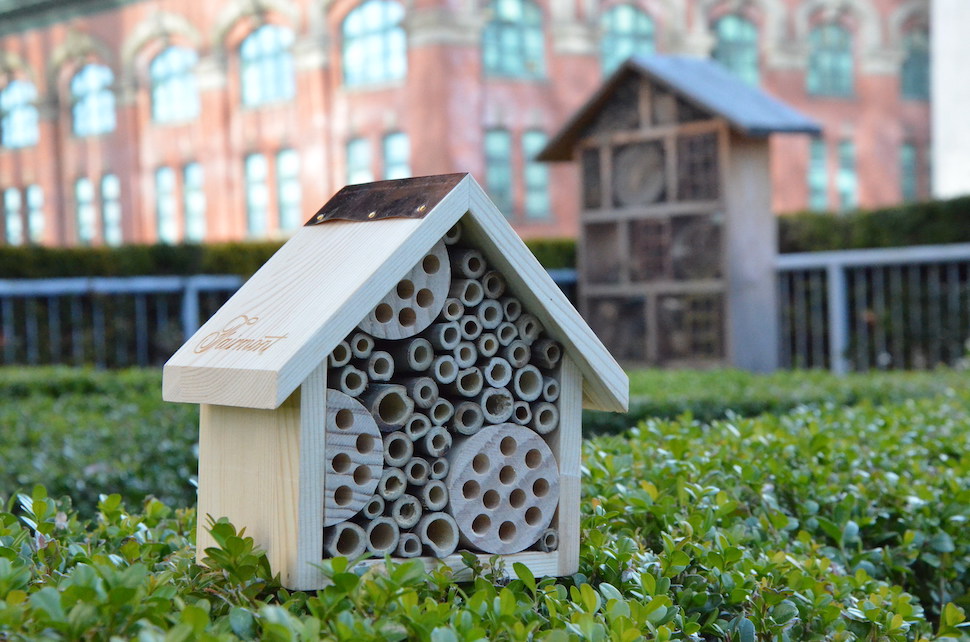
Bringing Bees Back
To help halt the unprecedented decline in the bee population, which plays a vital role in pollinating vegetables and fruits, Mandarin Oriental Hotel Group launched a brand-wide program. Every hotel is required to maintain a minimum of two hives, either on the property or with an offsite beekeeper. Mandarin Oriental, Miami houses more than 210,000 honeybees on its rooftop. For Earth Day, it’s using the honey in its Bees Knees cocktail (which also includes gin and lemon), desserts like the bougainvillea mousse and Peruvian amaranth, and in spa treatments like the Milk and Honey Tranquil Delight (a milk and honey body scrub followed by a back, neck and shoulder massage).
Fairmont Hotels & Resorts is a pioneer in this arena, developing the Bee Sustainable program in 2008 and becoming the first luxury hotel brand to have extensive onsite bee offerings. The program is in more than 20 hotels worldwide, including Fairmont Waterfront, Vancouver, whose third-floor terrace is home to almost a quarter million honeybees that are tended to by a bee butler, and Fairmont Mayakoba, Riviera Maya, which cultivates rare Melipona bees, stingless insects native to the Yucatan that produce a type of honey that’s known for its medicinal properties (the Mexican hotel uses the nectar in services at Willow Stream Spa).
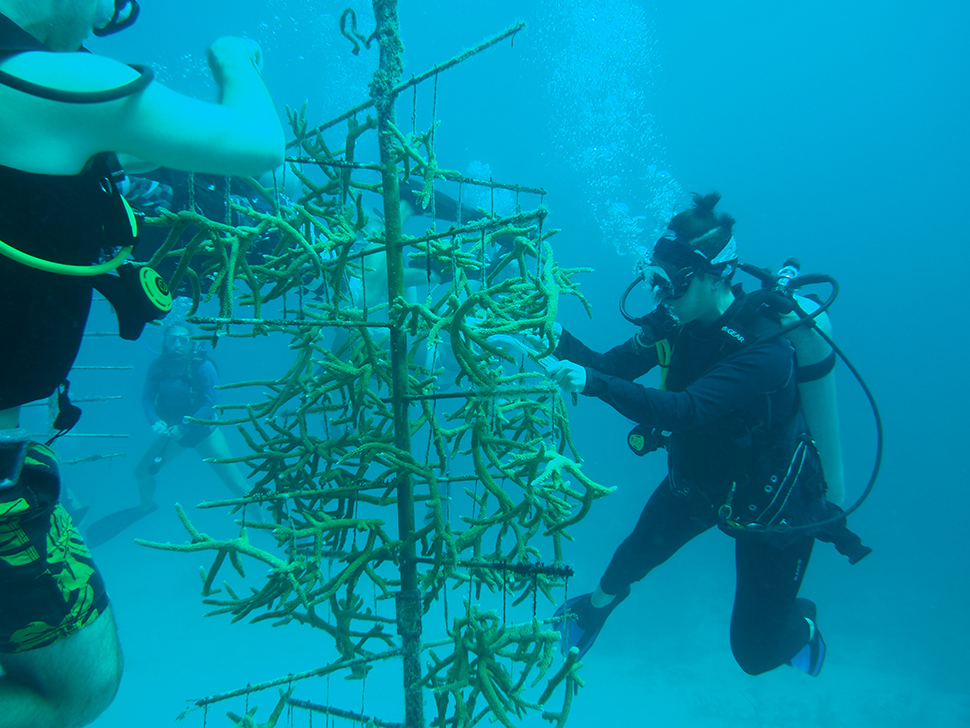
Restoring the Reefs
Coral reefs are integral to the underwater ecosystem, providing food and shelter to 25 percent of marine life. But the reefs are dying. In the last 50 years, 30 percent of the world’s reefs have disappeared, conservation group Oceanus, A.C. reports.
Hotels are trying to revive them. Kimpton Seafire Resort & Spa in the Cayman Islands trained staff members to become Seafire Guardians. They are certified to handle coral and work alongside a local dive company to replenish the fragile animals in its pristine waters. Fairmont Mayakoba offers a restoration program that allows guests to partake in the coral planting efforts in several fun and interactive ways (learn more about it here). And Rosewood Bermuda has supported the Living Reefs Foundation, an environmental organization dedicated to the preservation of Bermuda’s aquatic ecosystem, including its coral structures, since 2014.
Sustaining the Future
When predicting what lies ahead next in sustainability, Houdré gets excited about solar windows, which are still in development. Like solar panels, these windows will be able to capture energy from the sun’s rays. “That’s going to be huge for cities like New York, Las Vegas, Los Angeles, Dallas,” he says.
Wellness is another area of opportunity, Houdré adds. “Wellness and sustainability are one path,” he says. “I think that wellness and sustainability are going to be the future of our industry.”
